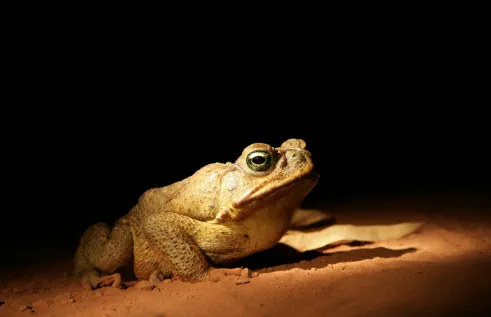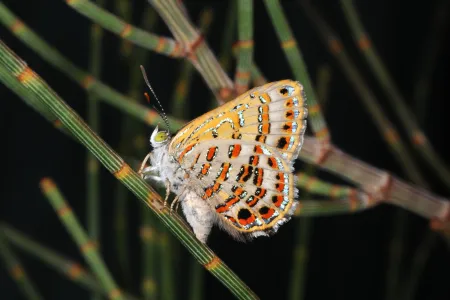Study reveals extreme rate of Australia’s invertebrate extinction
An estimated one to three species of insects and other native invertebrates are becoming extinct in Australia every week, according to a new study revealing the immense scale of the nation’s biodiversity loss.
The study by 10 scientists from across Australia, led by Charles Darwin University (CDU) Professor and Biodiversity Council member John Woinarski, aimed to estimate the number of non-marine Australian invertebrate species (those without a backbone) that have become extinct since Europeans arrived in 1788.
These invertebrates include groups such as worms, snails, spiders and insects such as beetles, bees and butterflies.
Professor Woinarski, who is part of CDU’s Research Institute for Environment and Livelihoods, said the study estimated about 9,111 Australian invertebrate species are likely to have become extinct in this 236-year period.
“Allowing for uncertainties and knowledge gaps, our analysis indicates that the true number is at least 1500 species and possibly up to 60,000 extinctions,” Professor Woinarski said.
“This matters to every person as invertebrates are the foundation of all healthy environments and a livable planet. Invertebrates provide myriad essential functions that people depend on like pollinating crops and breaking down organic matter.
“As we lose invertebrates the health of our crops, waterways, forests and even local parks and backyard gardens will decline.”
Professor Woinarski said the study highlighted the urgent need for conservation support, and the consequences of prevailing biases to iconic species in existing conservation efforts.
“It is important that Australia’s federal and state and territory governments, and the community, give much greater priority to understanding, monitoring and protecting our invertebrates,” Professor Woinarski said.
“Only one of these extinctions has been formally recognized under Australian environmental legislation, that of the Lake Pedder earthworm. Most of the species became extinct before they were even described and named by scientists: the study calls these ‘ghost extinctions’.
“Despite their incredible importance there has been a long running bias against invertebrates, with little funding available for their research and conservation.”
Co-author Dr Jess Marsh from the University of Adelaide, who is also a member of the Biodiversity Council and Invertebrates Australia, added while many species are at a high risk of extinction, saving them from that fate is possible.
“We don’t have to accept their losses as inevitable. There is a lot we can do to prevent extinctions, including by protecting important habitats and reducing threats, such as pesticide use,” Dr Marsh said.
“A first step is for people to be aware of the importance of invertebrates as the foundations of our natural world, and to be aware that many invertebrate species are at high risk of extinction, and many have already been lost.”
The study, This is the way the world ends; not with a bang but a whimper: estimating the number and ongoing rate of extinctions of Australian non-marine invertebrates was published in the journal Cambridge Prisms: Extinction.
Related Articles

First “hype cycle” of AI development put tech above humans
Users around the world have rushed to adopt artificial intelligence - especially in safety-critical fields - but a new study has revealed the hype has prioritised technology for technology’s sake instead of human-centred development.
Read more about First “hype cycle” of AI development put tech above humans
Nanoplastics hindering cognitive abilities of fish, international research shows
Nanoplastic exposure can impair the cognitive abilities of fish and could lead to significant impacts on marine species’ ability to survive, according to a new international study.
Read more about Nanoplastics hindering cognitive abilities of fish, international research shows
Eradication would cost billions: NT’s lessons for Pilbara’s cane toad management
Cane toads are predicted to invade Western Australia’s Pilbara region by 2041 if left unchecked, but the Northern Territory’s population of the pests hold key lessons that could save billions in eradication costs.
Read more about Eradication would cost billions: NT’s lessons for Pilbara’s cane toad management
